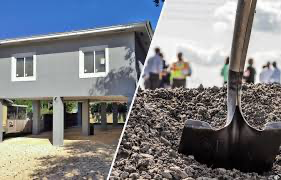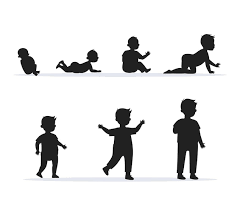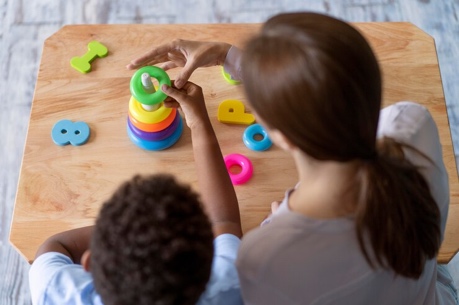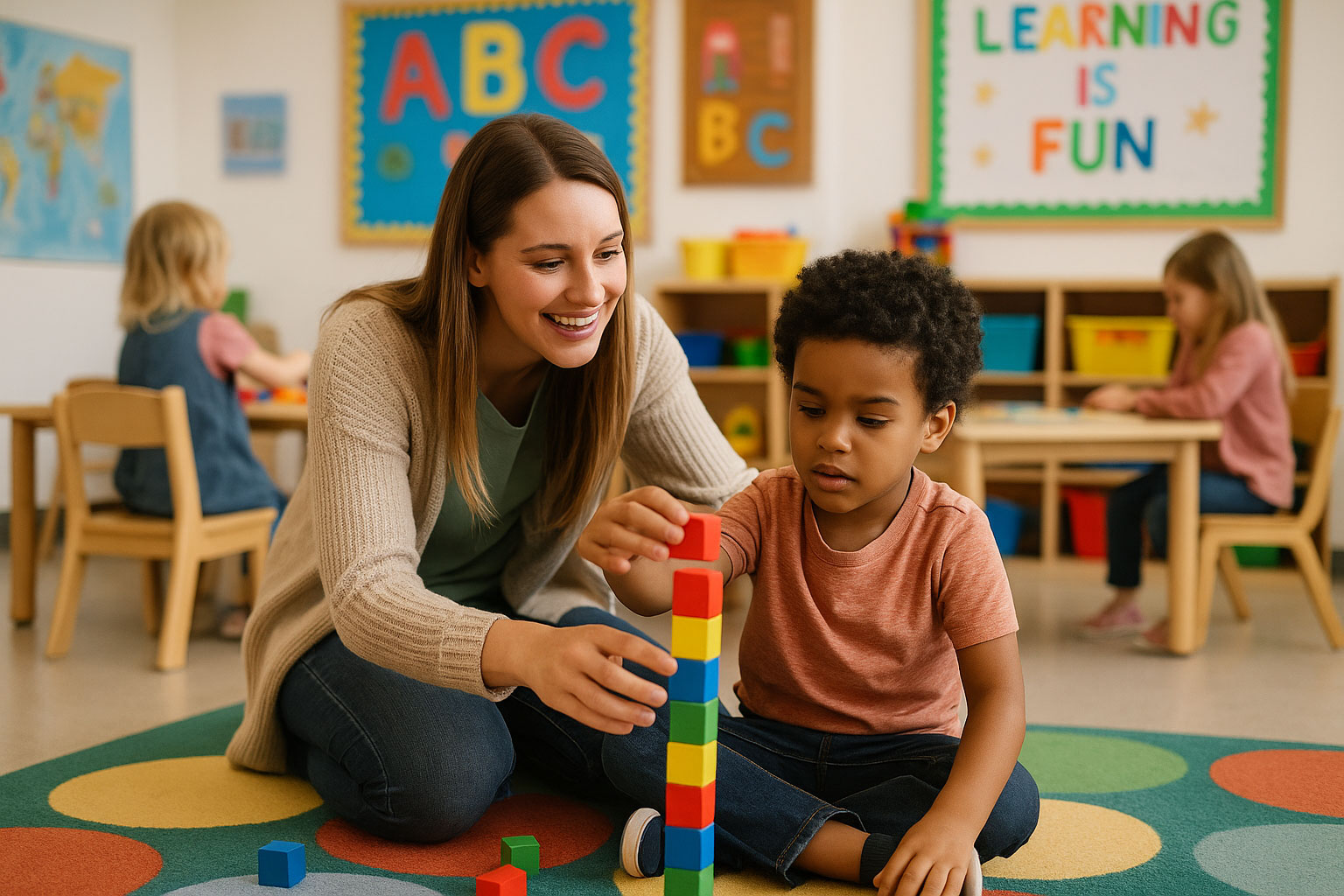By Ana T. Main
 When we think of a building, one of the first things that come to mind is its foundation. A strong, stable foundation is essential to ensure the structure stands tall and withstands the test of time. Without it, even the most well-designed and well-constructed building would be vulnerable to collapse. Similarly, the foundation of a child’s education is laid during their early years, and it plays a critical role in their academic success and overall development throughout their lives. According to the American Public University: “Early childhood education… It provides a strong foundation for later academic, social, and emotional growth” (American Public University, Educational Blog, n.d.).
When we think of a building, one of the first things that come to mind is its foundation. A strong, stable foundation is essential to ensure the structure stands tall and withstands the test of time. Without it, even the most well-designed and well-constructed building would be vulnerable to collapse. Similarly, the foundation of a child’s education is laid during their early years, and it plays a critical role in their academic success and overall development throughout their lives. According to the American Public University: “Early childhood education… It provides a strong foundation for later academic, social, and emotional growth” (American Public University, Educational Blog, n.d.).
Early childhood education is not just an introduction to the world of learning; it is the cornerstone upon which all future education is built. As the saying goes, “The taller the building, the stronger the foundation needs to be.” This analogy is especially true when it comes to education. The earlier we invest in a child’s education, the stronger their foundation will be, and the more resilient they will be in facing future challenges.
The Importance of Early Childhood Education
 Research consistently shows that the experiences children have in the first five years of life are crucial to their long-term cognitive, social, and emotional development. During this time, the brain forms thousands of new connections every second, laying the groundwork for critical skills like language, problem-solving, social interaction, and self-regulation (Palmer, 2019). These early experiences are not just building blocks but the very framework that supports a child’s ability to learn and grow in the years to come.
Research consistently shows that the experiences children have in the first five years of life are crucial to their long-term cognitive, social, and emotional development. During this time, the brain forms thousands of new connections every second, laying the groundwork for critical skills like language, problem-solving, social interaction, and self-regulation (Palmer, 2019). These early experiences are not just building blocks but the very framework that supports a child’s ability to learn and grow in the years to come.
Like a building with a solid foundation, children who receive quality early childhood education are more likely to succeed academically, socially, and emotionally throughout their lives. Studies have shown that children who attend preschool are more likely to excel in elementary school, graduate from high school, and even attend college. They also tend to have stronger relationships with their peers, better emotional regulation, and a greater sense of well-being (National Conference of State Legislatures, 2021).
A Strong Foundation for Lifelong Learning
The concept of a “strong foundation” in education goes beyond basic skills like reading and math. Early childhood education is about nurturing the whole child—cognitive, emotional, social, physical, and spiritual development. When children are provided with a nurturing, stimulating environment during their early years, they develop critical thinking, communication, and problem-solving skills that will serve as a solid base for all future learning (American Public University, Educational Blog, n.d.).
Just as a building needs a solid foundation to support multiple stories, children need early learning experiences that prepare them for a range of future challenges. A positive early education experience fosters curiosity, self-confidence, and the ability to adapt to new environments—all of which are essential for success as children progress through school and life.
The Ripple Effect of Early Education
The impact of early childhood education extends far beyond the individual child. A strong educational foundation contributes to broader societal benefits, including improved economic outcomes, stronger communities, and greater social equity. Children who have access to quality early learning programs are less likely to need special education services later on, reducing educational costs and increasing the likelihood that they will graduate from high school and pursue higher education (National Center for Education Statistics, 2021).
Moreover, early education plays a vital role in closing the achievement gap. Children from disadvantaged backgrounds often face greater challenges in life, and without the foundation that early childhood education provides, these challenges can become even more pronounced. By investing in early childhood education, we create more equitable opportunities for all children, regardless of their socioeconomic status (Rasmussen College, 2021).
Building a Future
 As we look to the future, it’s essential to recognize the undeniable link between early childhood education and long-term success. Just as a building cannot stand without a strong foundation, a child’s educational journey cannot thrive without the critical experiences provided in their early years. The better the foundation we lay, the more likely they are to build upon it, reaching greater heights academically and socially.
As we look to the future, it’s essential to recognize the undeniable link between early childhood education and long-term success. Just as a building cannot stand without a strong foundation, a child’s educational journey cannot thrive without the critical experiences provided in their early years. The better the foundation we lay, the more likely they are to build upon it, reaching greater heights academically and socially.
It’s time we commit to strengthening the foundation of education for every child. By investing in early childhood education, we are investing in the future—not only the future of the child but the future of our society as a whole.
Conclusion
In conclusion, early childhood education is far more than just the beginning of a child’s learning journey. It is the bedrock upon which the entire structure of their education and future success will be built. Just as an architect or engineer would never dream of constructing a tall building without a solid foundation, we should never underestimate the power and importance of giving our children the strongest possible start in life. The future of our children, and by extension, our society, depends on it.
References:
- American Public University. (n.d.). Early childhood education: A foundation for future success. Educational Blog. Retrieved from https://www.apu.edu
- Palmer, J. (2019, October 9). The importance of early childhood education. Research Article. Retrieved from https://www.research.gov
- National Conference of State Legislatures. (2021). Social and emotional development in early learning settings. Retrieved from https://www.ncsl.org
- Rasmussen College. (2021). The achievement gap and early childhood education. Retrieved from https://www.rasmussen.edu
- National Center for Education Statistics. (2021). Achievement gaps. Retrieved from https://nces.ed.gov

